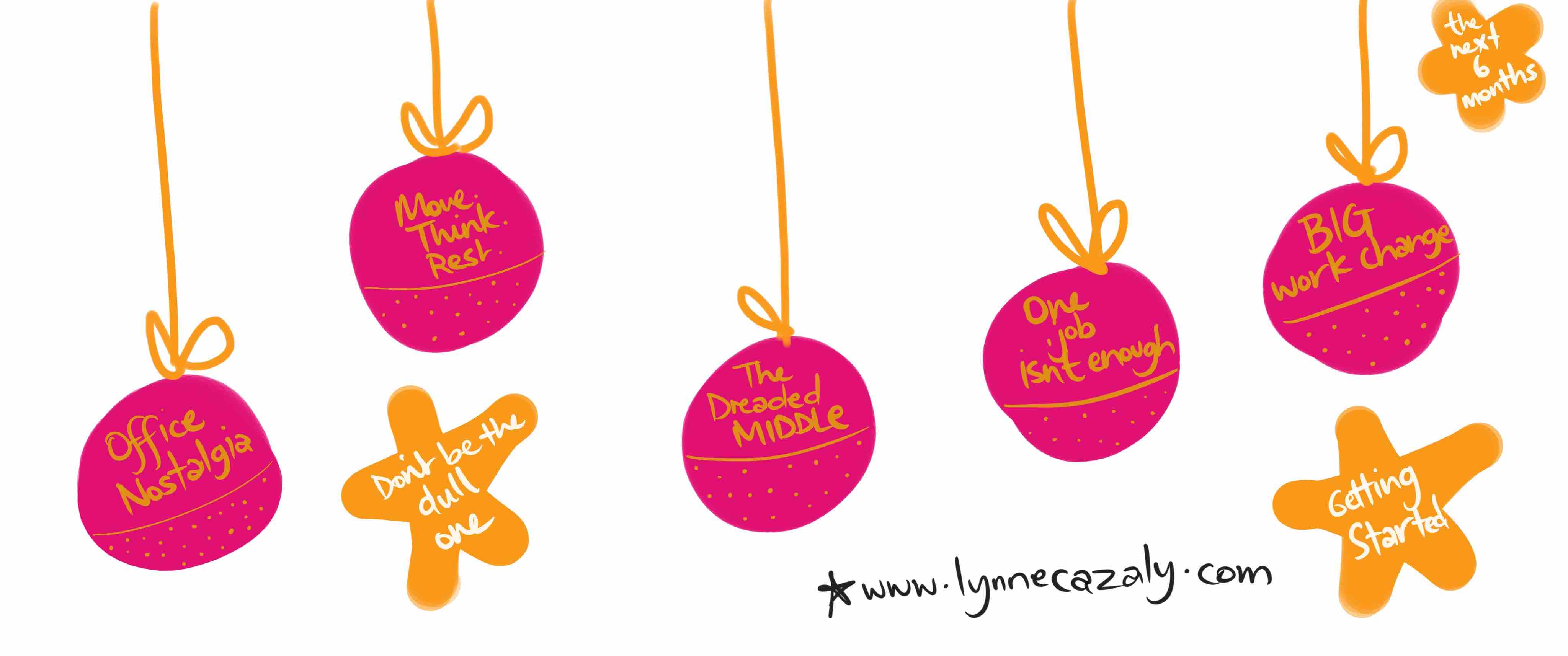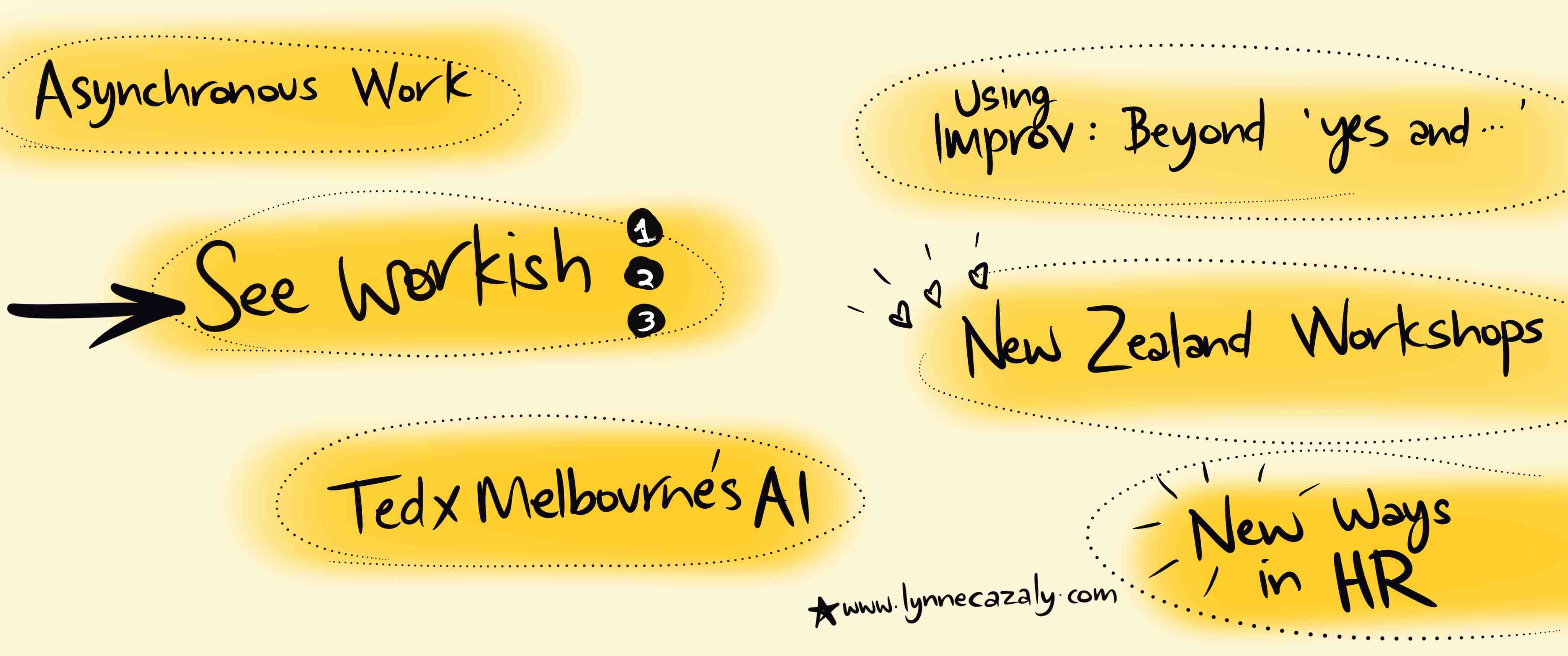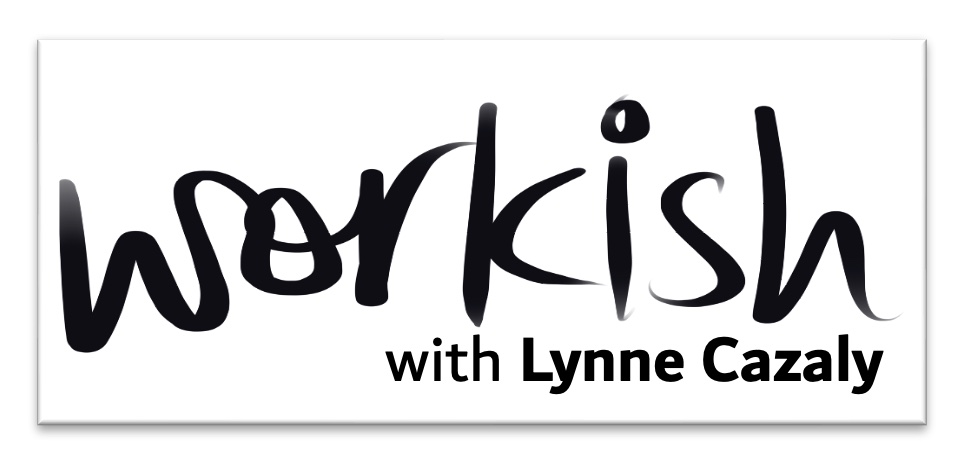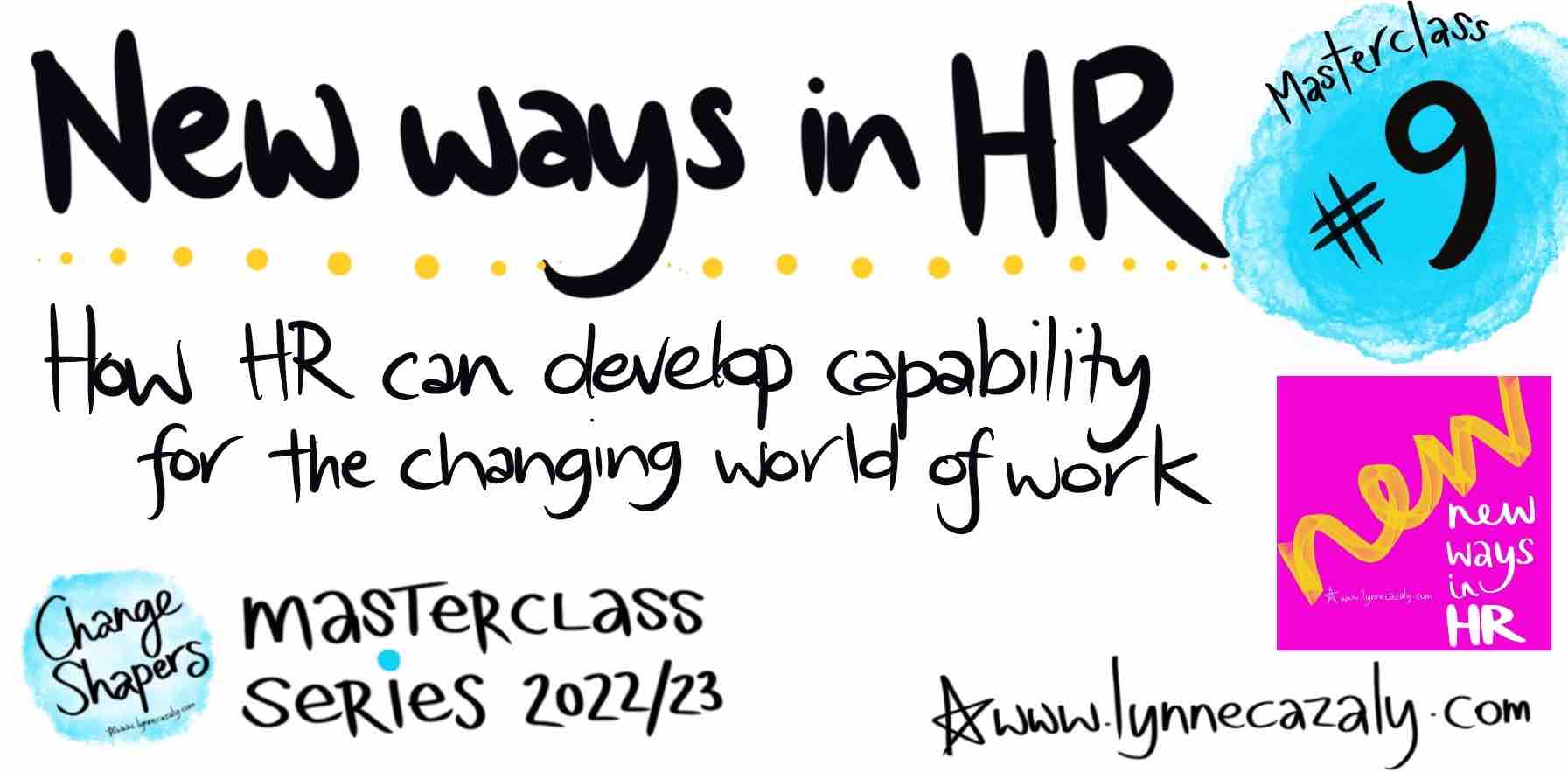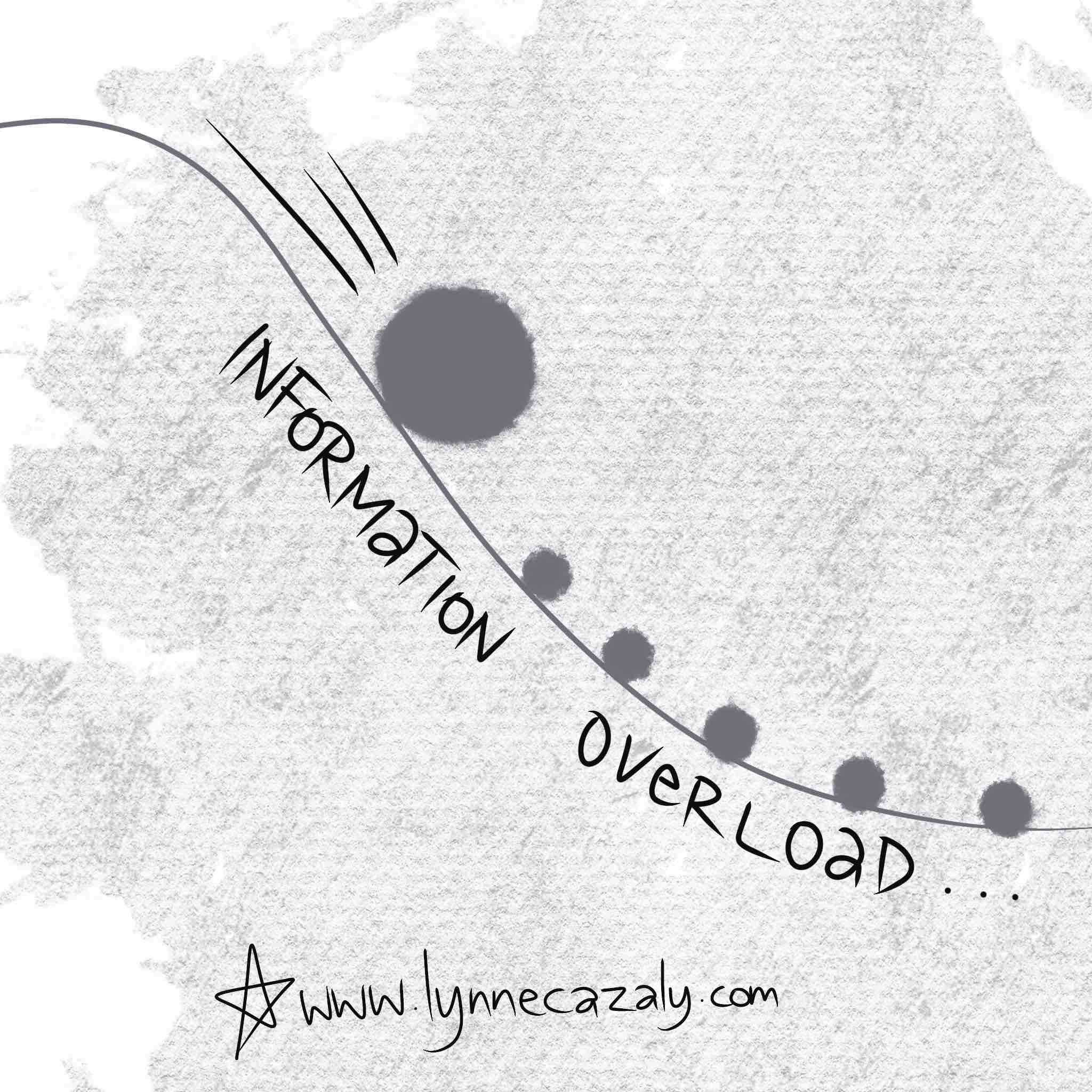Refresh leadership development/Do you soak it up/The voice in your head/Not a priority/Open to the new/Meetings get you down
 Thursday, September 5, 2024 at 5:54PM
Thursday, September 5, 2024 at 5:54PM When they say, 'you don't need to take notes' - what do you do?
It happens at conferences; it happened in a meeting yesterday; it happens in presentations and workshops.
The presenter/speaker/leaders suggests you don't need to take notes. You can just
- sit back and soak it up
- focus and pay attention
- read the pack/info/transcript later.
But they're not you. You know how you like to absorb information, convert it to information you'd like to keep/retain/recall - and most of all, you know how you learn.
So what about the assumptions above?
- We may sit back and soak it up but we can only soak up about 90 seconds of information before our short term memory conks out. So while information might make sense to us as it's unfolding, we may not recall or retain it for later.
- We may focus and pay attention, giving the presenter their much loved eye contact and facial expressions (you know when cameras are off in remote meetings and people complain/ed about how they couldn't read facial expressions or know if they were engaging? Yeah, that's a post for another time) but that's also about the presenter/speaker/leader. It's not what you'd like to do or how you'd like to do it.
- We may defer to 'catching up' with the detailed content later, but few of us truly do and, not as much as our future self thinks we will. Whether you're pro notes (analogue or digital) or not, know that you can't recall all you think you will and that your brain doesn't hold as much in the moment as you think it can.
It's why cognitive load coping in this era of so much more information is such a clever skill. It's clever because we must accept and acknowledge that we need a little guidance on dealing with information in better ways.
Then we'll:
- feel better at the end of the day,
- have processed and stored information more effectively,
and
- be able to connect the dots through the information we're processing.
We become better trend spotters, insight gatherers and more able to spot cues and hints, weaving them into what we already hold.
Do you. Yes, do you, when it comes to notes; but also know that your future self will hope like heck that you did capture something in the now.
Leadership development needs a refresh
This recent piece in Fast Company shares some of the reasons why leadership development could be ‘broken’.
Some of the issues include:
💀 overwhelming online learning libraries (who’s got time to explore them?)
💀 training experiences that don’t deliver change (they’re fun — but then what?)
💀 pricey retreats that don’t create true impact (but the wine was good wasn’t it?)and
💀 1:1 coaching that’s too slow and labour intensive (but coaching is so hot right now, no?)
What do you think?
We’ve all experienced the overload of learning content that does little to change behaviours or install new capability.
Learning events can be euphoric but unless there is a behaviour shift designed into the program, it’s just more and more and more information put in the hands of participants to absorb and embed.
Development tools, methods and techniques need to keep evolving. Just as new ways of working have been spreading across the world, so too must new ways of learning, and targeted at developing an entire workforce — not just leaders.
Skills gaps continue to be felt at all levels in many businesses.
And for many learning program participants, old ways of learning persist; there are too few opportunities in a business to put new skills into practice or experiment with them, with true safety.
Is leadership development broken where you are? Or is it evolving into something new and hopefully, a little different?
Whether it’s budget, time, ineffectiveness or the same old topics, leadership development — and development generally — needs a refresh, update, and probably a rebrand too.
Is there a voice in your head as you’re reading this?
There’s one in my head; I can hear it as I’m typing/writing this and I hear it as I’m reviewing and reading what I’ve written.
Most of us have this ‘subvocalisation’ as it’s called - and gosh, I’m relieved it has a name! 😁
This human behaviour helps us with
🔅 memory and recall
🔅 understanding and comprehension
🔅processing and integrating information.
Read more — and listen to yourself 😜 — in this piece by Madeleine Muzdakis.
🎤 I’m a conference keynote speaker on the topic of Cognitive Load Coping. Open your event with a session that helps people better handle the torrent of information they’re drowning under.
Engagement isn’t a priority
Yes there’s just too much else going on. The modern workplace is shapeshifting and right-sizing. It’s steaming ahead with priorities and results.
And engagement probably isn’t one of those must-have/must-do goals anymore.
Engagement levels have been decreasing for years and while they continue to be measured, how much do they matter?
And if they matter, how much effort do we want to put in to improve them?
And if we improve them, what difference will we notice against the goals, outcomes and results the business is aiming for?
Believe in the benefits of engagement and making it better; and don’t stop. But equally, don’t be surprised when other priorities (more urgent/more important) push engagement down the list of ‘why we’re doing this’.
Whether it’s engagement in a meeting, in a team, on a project or towards the greater goals of the business, it could be time to stop focusing on it — and attend to other more valuable needs.
Read more in this Fast Company article from Mark C. Crowley who suggests it is wellbeing that our sights should be set on improving.
Come on - are you really open to new things
I think we want to see ourselves as open and creative and willing to try and experience the new — but are we really, truly?
We can prefer the same menu items at the same places, the same holiday experiences and the same work, friends, genres of reading and music. So how much do we really explore novelty and newness?
In this Inc. Magazine article, the trait is labeled as ‘openness’, to the new and unfamiliar. And openness is a cracking good personality trait.
Read on and consider if you’re due for some more novelty, more of the unusual. It could lead to the many other benefits mentioned like happiness, slowed ageing, more creativity and better learning. Might be worth trying something new then?
Meetings getting you down?
There’s no denying work has changed in the past couple of years.
The rise of remote work, work from home, work from anywhere, work across different time zones and hybrid work continues to create change and challenges.
What’s one of the best ways to respond to the changing world of work? It’s to consider not just the work itself … but the WAY it gets done.
ASK:
◻️ Do we really need everyone at the same meeting at the same time? (synchronous work) 🥱
◻️ Could some people contribute prior to, or after the meeting or begin working on tasks outside of a meeting? (asynchronous work) 😃
A growing number of teams and businesses are learning and experiencing the value of deliberately working in sync / async ways. That is, some work is completed synchronously — at the same time with other people; and other elements of work completed asynchronously — at a time and in a way that suits them. 😄
And the state of meetings at work is also driving this shift.
Hey, you don’t need to wait for a culture to change or for someone to give you the go ahead on this. You can start working better in both sync and async ways from today, right now.
There will always be too much to do and not enough time in which to do it.
Putting practical sync async techniques to work can make your work easier … and the rest of life better.
Productivity is changing … to anxiety 😳
Some recent research results show this state of ‘productivity anxiety’ that many people experience. Have you felt it?
The feelings of anxiety reveal the questions that come up about work. They might be familiar.
▫️What should I be working on?
▫️What outcomes are most important?
▫️Am I focused on the right things?
▫️What is the highest priority right now?
▫️Is there anything that I can push until later?
▫️Is this the best use of my time?
▫️Is this valuable work?
While there’s always a drive to do more or better, what cost or impact does it have on us?
Remote employees are experiencing it more. It’s absolutely worth addressing when work is in any way connected to anxiety.
Read more about it in this Fast Company piece by Stephanie Vozza



















